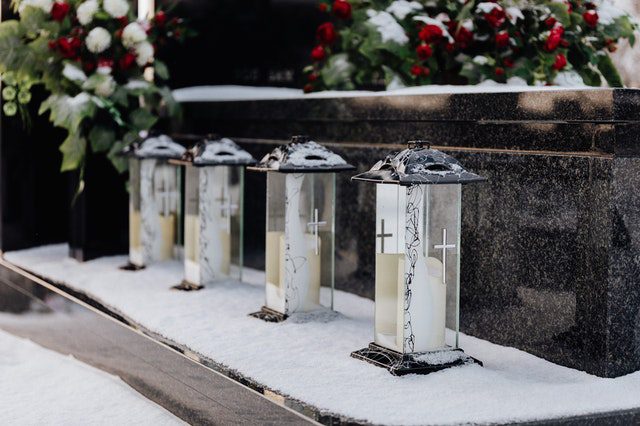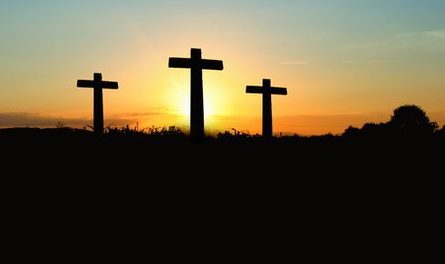I recently had the fun opportunity to accompany my dad and brother on a climbing expedition in Montana. Besides simply spending some quality time together and doing something fun and challenging outdoors as a welcome break from our COVID-enforced isolation, our goal was to reach the summit of Granite Peak—the highest mountain in the state. Granite Peak is a steep mountain with lots of sheer cliffs that is pretty much out in the middle of nowhere. Reaching the summit requires a three-day hike up the mountainside followed by a technical climb up the granite cliffs. But before you reach the cliffs, you have to walk. For miles. And because the trip is so many days long, you have to carry a lot of gear with you. As I walked along, laboring under the weight of my sixty-pound pack, I found myself thinking that there are a lot of interesting parallels between the kinds of things I was experiencing while climbing the mountain and the sorts of things we experience in our roles as Christian leaders. I’d like to share four of them here.

Find Firm Footing
The hike up the highest mountain in Montana begins with a simple, easy walk through the woods, but pretty quickly you start heading steeply uphill. Eventually you end up on switchbacks—sections where the trail doubles back on itself in order to make the climb more manageable. At the corners of the switchbacks there is often loose soil, and a slip there could mean a long slide off the trail and down the mountainside, potentially resulting in serious injury. You have to be careful where you put your feet. Up on the plateau toward the top of the mountain, the trail moves across giant boulders that are balanced on each other. Sometimes a rock that looks very stable can shift unexpectedly when you put your weight on it. A fall on the plateau might result in a twisted ankle or worse. When you’re climbing, it’s important to be sure that the places where you put your feet are firm and reliable. You don’t want to stumble. You don’t want to fall.
In our leadership positions, we need to find firm footing as well. We need to base our decisions on sound principles and secure guidance, not whims or flights of fancy. We can’t lead based solely on popular opinion or what we assume people will think about the choices we make. The firmest foundation of all is found in Scripture. Jesus said, “Anyone who listens to my teaching and follows it is wise, like a person who builds a house on solid rock” (Matthew 7:24, NLT). And there are many Bible passages that refer to Christ himself as the foundation or cornerstone of what God is building in the world (Isaiah 28:16; 1 Corinthians 3:9-11; Ephesians 2:20). We need to base our leadership positions—and indeed our whole lives—on Jesus, the Firm Foundation, so that our feet will not stumble despite the heavy loads we bear.

Enjoy the Flat Parts, but Don’t Stay There
When you spend whole days at a time hiking uphill, you learn very quickly to relish the flat areas. Sometimes the trail levels out for just a few feet, but it’s still a welcome break from the grueling monotony of the uphill climb. You need to take advantage of those little breaks, slowing down to make the moment of easier walking last as long as possible. But if you get too comfortable in the flat places—if you take your pack off and sit down and stay there indefinitely because it’s easier—you’ll never reach your destination.
Leadership is hard. It often feels like walking uphill with no end in sight. When you reach a flat place—when you meet budget one month or when sales rise unexpectedly or when a ministry plan suddenly begins to bear fruit—it’s good to relish the times of easier hiking. But the reality is, we were not made to live lives of ease. God uses the challenging periods of our lives to sharpen and strengthen us. Jesus said, “In the world you will have tribulation. But take heart; I have overcome the world” (John 16:33, NLT). In other words, the Christian life is hard. Christian leadership is hard. It’s always going to be hard. But God also says, “Fear not, for I am with you. Be not dismayed, for I am your God; I will strengthen you, I will help you, I will uphold you with my righteous right hand” (Isaiah 41:10, NLT). We can enjoy the flat parts when we reach them, but we can’t stay there. We need to lean into the hills and keep walking, relying on God to give us the strength we need for the journey he has called us to.
Be Safe, but Don’t Be Afraid
Mountain climbing is dangerous. There are times when breaking concentration for even an instant could result in a catastrophic fall. As you approach the summit of Granite Peak, there are several long stretches of Category 5 climbs. Category 5 means that a fall would be fatal, and technical climbing skills and special equipment are needed to reach the top. That is dangerous! But just because it’s dangerous doesn’t mean you shouldn’t climb. There are ways to mitigate the risks. You can use ropes and belay systems and helmets and proper shoes. You can rappel down the cliffs instead of trying to climb down without ropes. You can stay roped to your teammates so that if one person falls, the others can support the weight of the fallen climber. Safety is important. But so is risk. The reality is, if you don’t take any risks, you’ll never reach the top.
In leadership, it’s likewise important to be safe. But don’t be too safe. Take appropriate risks. Use ropes when necessary—hedge your bets in appropriate ways, seek and listen to wise counsel, develop a contingency plan, build up a financial safety net, etc. But if you never leave the trailhead, you’ll never reach the summit. And if you chicken out the moment adversity looms like a cliff in front of you, you’ll never achieve ultimate success.

Take Pictures
Walking along the plateau at 11,000 feet above sea level, enjoying the beautiful sight of snow-topped mountain peaks in every direction, you find yourself wanting to break into song in praise of the God who made such splendor. That’s a moment you want to remember. When you watch your sixty-nine-year-old father scampering up a cliff face like Spiderman, you want to capture that memory. When you finally reach the summit after days of effort, you need to celebrate. It’s important to recognize the milestones and create memories along the way. I took hundreds of pictures during our climb. I knew people would be interested in seeing a glimpse of what we had encountered during our adventure. More important, I wanted photographs to trigger my own memories in days to come. My dad and brother and I have climbed maybe a dozen mountains together. I love looking back through photos of previous trips and seeing visual records of our accomplishments.
It is all too easy for us as hard-driving leaders to become so focused on the destination that we forget to enjoy the journey. In leadership, it’s important to slow down at times and recognize milestones. Celebrate minor victories. Thank a team member for a job well done. Look at the beauty God has placed around you. Take pictures. Make memories. And then, when the time is right, put the camera away and keep walking.
In leadership, as in mountain climbing, it’s important to find firm footing. It’s good to enjoy the flat parts, but you can’t stay there forever. You need to be safe, but do not be afraid to take appropriate risks. And don’t neglect taking pictures and making memories, so that you will have a record of what God has accomplished through your efforts to serve him.






